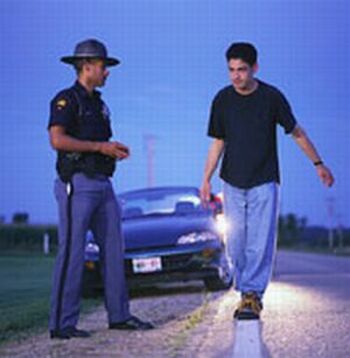
Publisher:
Bonnie King
CONTACT:
Newsroom@Salem-news.com
Advertising:
Adsales@Salem-news.com

~Truth~
~Justice~
~Peace~
TJP
Jun-17-2006 00:32

 TweetFollow @OregonNews
TweetFollow @OregonNews
State Fails to Collect on Drunken Drivers
By BRAD CAIN Associated Press Writer
 Salem-News.com |
(SALEM) - Oregon prides itself on having tough laws against drunken driving, but the reality has been that many people convicted of drinking and getting behind the wheel have been getting off cheaply.
The state's courts, citing budget constraints, are frequently choosing not to go after monetary penalties levied against convicted drunken drivers.
The result is that less than a quarter of the fees and fines assessed against offenders have actually been collected in the past three years, state officials say.
That translates to about $40 million in unpaid penalties during that time, officials say.
Anti-drunken driving activists and victims' rights advocates say the state is sending the wrong message by letting drunken drivers off the hook.
Springfield resident Anne Pratt, who lost her son Brian to a drunken driver in 1998, says she and her husband worked hard in the Oregon Legislature's 2003 session to win passage of a law setting stiffer fines for those who refuse a Breathalyzer test.
"If they are not collecting any of those fines, then the law has no teeth in it," Pratt says. "It's pretty discouraging."
Pratt, a member of the Gov.'s Advisory Committee on DUII, says she and several other members of the panel feel the state needs to find a way to make convicted drunken drivers pay up.
"Somebody needs to do something," she says.
DUII penalties are set by the Legislature but it's up to the courts around the state to levy the fines against people convicted of the crime.
Sarah Gates, the deputy state court administrator, says convicted drunken drivers who can't afford to pay the financial penalties outright are often allowed to set up a payment plan with the courts.
If the person fails to make those payments, Gates said, the courts send them letters reminding them of the unpaid fines. When that doesn't work, the courts often turn the issue over to private collection firms.
"Sometimes you just cannot collect the debts," she said. "People move; it's impossible to trace people all of the time. They tend to be transitory."
Further, she said, the courts in recent years have been squeezed by budget cuts that for a time forced courts around the state to close on Fridays.
The state's courts have been working to improve the collection of unpaid fines, she said, but at the same time "we do not have surplus resources to dedicate to this."
Troy Costales, manager of the Oregon Department of Transportation's safety division, says he's sympathetic to the state court system's budget problems; however, drunken driving "isn't a minor offense."
In Oregon alone, more than 25,000 motorists are arrested for DUII each year, more than 160 people are killed and about 2,000 are injured in alcohol-related crashes, he said.
He said the next Legislature might be asked to consider finding other ways to collect money from offenders, such as wage garnishment, asset forfeiture and seizing tax refunds.
Also, he noted that in 2002, the Washington State Patrol teamed with local courts and local prosecutors to pursue unpaid DUII fines and penalties by tracking down those people, knocking on their doors and forcing them to pay up.
Glenn Cramer, a former Washington State Patrol officer who took part in the effort, said it brought in several hundred thousand dollars.
But more important, Cramer said, "it was letting the victims of drunken drivers know that we cared, and that we were holding these drunken drivers accountable."
The Oregon State Police have been struggling with a shortage of troopers for years, but one member of the governor's advisory panel on DUII says he thinks a more aggressive effort to bring in unpaid penalties could provide money to hire more troopers.
"There's always this question about how do we pay for more troopers," says Elliott Eki, who's also public affairs director of the Oregon-Idaho AAA. "Well, we've got that money sitting there, that is owed to the state, and apparently no one is going to go get it."
Articles for June 16, 2006 | Articles for June 17, 2006 | Articles for June 18, 2006
Salem-News.com:




Quick Links
DINING
Willamette UniversityGoudy Commons Cafe
Dine on the Queen
Willamette Queen Sternwheeler
MUST SEE SALEM
Oregon Capitol ToursCapitol History Gateway
Willamette River Ride
Willamette Queen Sternwheeler
Historic Home Tours:
Deepwood Museum
The Bush House
Gaiety Hollow Garden
AUCTIONS - APPRAISALS
Auction Masters & AppraisalsCONSTRUCTION SERVICES
Roofing and ContractingSheridan, Ore.
ONLINE SHOPPING
Special Occasion DressesAdvertise with Salem-News
Contact:AdSales@Salem-News.com
Terms of Service | Privacy Policy
Comments are Closed on this story.
[Return to Top]
©2026 Salem-News.com. All opinions expressed in this article are those of the author and do not necessarily reflect those of Salem-News.com.